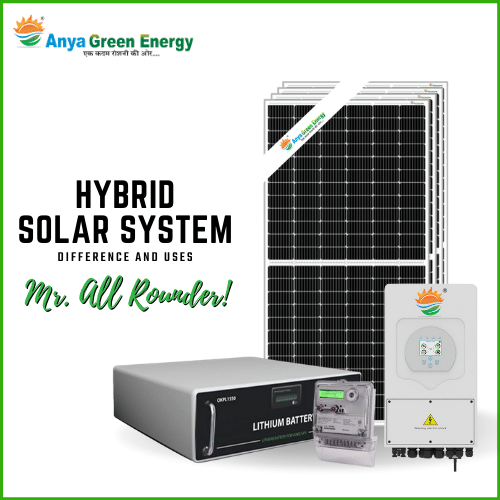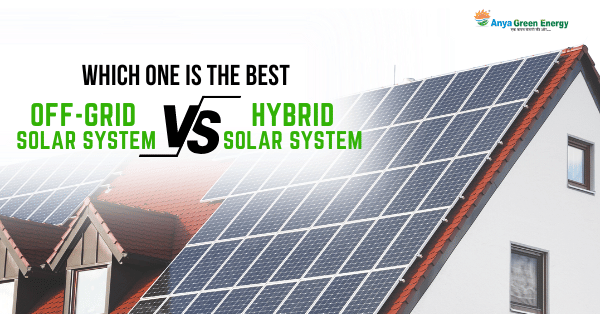HYBRID SOLAR SYSTEM FOR ELECTRONIC GADGET FACTORY
In the dynamic landscape of electronic gadget manufacturing, a paradigm shift towards sustainability is essential. The integration of a hybrid solar system for electronic gadget factories emerges as a game-changer, offering both environmental benefits and operational advantages. This blog delves into the rationale behind choosing a hybrid solar system for electronic gadget factories, highlighting its importance and the myriad benefits it brings to the table.
Get Hybrid Solar System for Electronic Gadget Factory

Why choose hybrid solar system for electronic gadget factory ?
The decision to embrace a hybrid solar system for an electronic gadget factory is rooted in the pursuit of cleaner, more sustainable energy solutions. The keyword, “hybrid solar system for electronic gadget factory,” encapsulates the essence of this forward-thinking approach. Electronic gadget manufacturing involves intricate processes with considerable energy requirements, making the need for a reliable and green energy source paramount.
Importance of hybrid solar system for electronic gadget factory
Energy Demands: Electronic gadget factories operate in an energy-intensive environment, requiring a consistent and substantial power supply. A hybrid solar system ensures a continuous power flow by combining solar energy with traditional grid power, meeting the demanding energy needs of gadget production.
Environmental Responsibility: The electronic industry’s carbon footprint is substantial, and addressing environmental concerns is imperative. Opting for a hybrid solar system aligns with corporate social responsibility, demonstrating a commitment to reducing greenhouse gas emissions and fostering a sustainable future.
Operational Continuity: Gadget manufacturing involves precision and consistency. A hybrid solar system mitigates the intermittent nature of solar power, ensuring uninterrupted operations even during cloudy days or nighttime. This reliability is crucial for meeting production deadlines and maintaining operational efficiency.
Cost Efficiency: The integration of solar power contributes to significant cost savings. By harnessing solar energy during peak sunlight hours, the factory can reduce its reliance on conventional grid power, translating to lower electricity bills and enhanced financial sustainability.
Benefits of hybrid solar system for electronic gadget factory
Reduced Operating Costs: The keyword’s emphasis on a hybrid solar system signifies a strategic move towards financial efficiency. Reduced reliance on grid power leads to lower operating costs, providing the electronic gadget factory with a competitive edge in the market.
Green Energy Credentials: Incorporating a hybrid solar system enhances the factory’s environmental credentials. This commitment to sustainable practices can resonate with environmentally conscious consumers, potentially boosting the brand’s reputation and market appeal.
Government Incentives: Governments worldwide incentivize the adoption of renewable energy sources. A factory investing in a hybrid solar system can take advantage of tax credits, subsidies, and other financial perks, making the transition to sustainable energy more economically viable.
Long-Term Sustainability: Solar panels have a lifespan of 25 years or more with proper maintenance. This long-term sustainability ensures a stable and reliable energy source for the electronic gadget factory, contributing to its resilience and adaptability in the ever-evolving market.
Community Engagement: Supporting sustainable energy practices contributes positively to the local community. The adoption of a hybrid solar system showcases the factory’s commitment to reducing its environmental impact, fostering goodwill and community support.
Energy Independence: The integration of solar power promotes energy independence. By generating a portion of its electricity needs, the electronic gadget factory becomes less susceptible to energy price fluctuations and grid outages, ensuring consistent and reliable power.
In conclusion, the adoption of a hybrid solar system for electronic gadget factories is not just a technological upgrade; it’s a strategic move towards a sustainable and economically viable future. The keyword, “hybrid solar system for electronic gadget factory,” encapsulates the essence of this transformative shift, symbolizing a commitment to greener practices and responsible energy consumption.
As the electronic industry continues to evolve, integrating hybrid solar systems will likely become a benchmark for environmentally conscious and forward-thinking manufacturing processes, paving the way for a brighter and more sustainable tomorrow.


